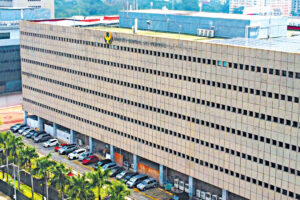
Philippine central bank eyes expanded pawnshop services
THE BANGKO SENTRAL ng Pilipinas (BSP) is looking to amend its rules on pawnshops, which will allow them to offer more services such as money changing and gold trading.
In a draft circular posted on its website, the central bank said it is seeking to revise sections of the Manual of Regulations for Nonbank Financial Institutions related to pawnshops.
These amendments aim to “define the scope of pawning business and the allowable corollary business activities of pawnshops to support their dynamic industry landscape and importance in the delivery of financial services.”
Pawnshops lend money on personal property that is surrendered to the pawnshop operator as loan collateral. They can also buy goods that are accepted as collateral in a pawning transaction on condition that the goods are redeemed or repurchased by the seller within a fixed period.
The BSP said pawnshops can engage in corollary businesses provided they keep records and start internal control measures that will distinguish these from the main pawnshop operation and to protect consumers.
Allowable corollary business activities include operating as a remittance agent, money changer, foreign exchange dealer, operator of a payment system or gold trader, subject to registration and accreditation by the BSP.
It said pawnshops may buy gold from registered small-scale miners and eventually sell it to the central bank.
“Pawnshops may also act as financial access touchpoints for the delivery of financial services,” the BSP added.
These include acting as a remittance sub-agent, serving as cash agents of banks, bill payment or top-up partners of utility and other companies, cash collection services and corporate payout partner.
The BSP said pawnshops are barred from facilitating or encouraging any activity related to gambling. If the draft rules are approved, pawnshops have one year from the effectivity of the circular to comply with the amended guidelines.
Stakeholders have until Dec. 6 to give their feedback on the proposed circular. — Luisa Maria Jacinta C. Jocson

